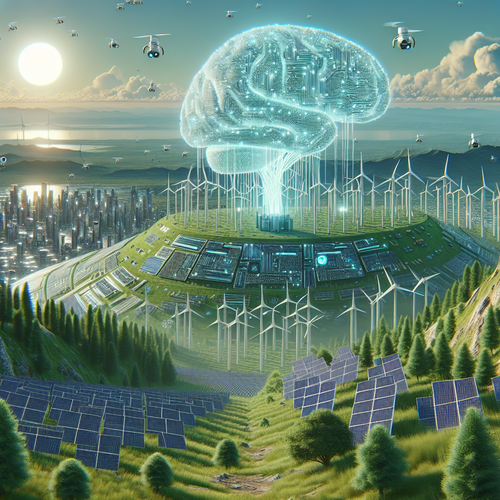
The Role of AI in Climate Change Mitigation
The Role of AI in Climate Change Mitigation
As the world grapples with the escalating effects of climate change, artificial intelligence (AI) emerges as a powerful ally in the fight for sustainability. By employing advanced algorithms and data analytics, AI can significantly enhance our ability to combat climate change, streamline energy consumption, and promote eco-friendly practices.
AI and Climate Predictions
One of the most crucial applications of AI is in climate modeling and prediction. Traditional climate models often struggle with the complexities and variabilities in climate data. AI, however, leverages machine learning to analyze vast datasets, leading to more accurate predictions of future climate scenarios.
- Data-Driven Insights: AI analyzes historical climate data, satellite images, and environmental factors to make informed predictions about climate changes.
- Adaptive Strategies: With accurate modeling, governments and organizations can develop adaptive strategies to mitigate potential climate impacts, enhancing resilience.
Energy Efficiency and Management
AI plays an essential role in optimizing energy use in various industries. Smart grids, powered by AI, can dynamically balance energy loads and reduce waste.
- Predictive Maintenance: AI-powered systems can predict when infrastructure requires maintenance or upgrades, minimizing downtime and conserving resources.
- Demand Response Technologies: These systems help manage energy consumption patterns, leading to reduced energy use during peak hours and ultimately lowering carbon footprints.
AI in Renewable Energy
As the world shifts towards renewable energy sources, AI proves invaluable in improving the efficiency and reliability of these technologies.
- Solar Panel Optimization: AI algorithms can optimize the angle and positioning of solar panels to maximize energy production based on weather forecasts.
- Wind Farm Management: By analyzing data on wind patterns, AI can optimize the operation of wind turbines, enhancing energy output.
Enhancing Sustainable Agriculture
AI is revolutionizing agriculture by providing farmers with tools to optimize crop yielding while minimizing environmental impact. Precision agriculture employs AI systems that analyze soil conditions, weather data, and crop health.
- Smart Irrigation Systems: These systems utilize AI to determine the ideal amount of water needed, reducing waste and conserving water resources.
- Pest and Disease Management: AI can identify pests or diseases early, allowing for targeted interventions and reducing the reliance on pesticides.
The Future of AI in Climate Action
The potential of AI in climate change mitigation is vast and continues to grow. As technology advances, we can expect more innovative solutions to emerge, contributing to a sustainable future.
Organizations and governments must prioritize integrating AI into their climate action plans. This strategic approach will pave the way for a coordinated global response to climate change, leveraging AI to inform policies and practices.
For insights on how technology impacts various domains, check out our piece on Exploring the Benefits of Quantum Encryption.
Conclusion
AI is not just a technological advancement; it’s a crucial component in our collective effort to combat climate change. By harnessing its capabilities, we can promote sustainability and work towards a healthier planet.
















